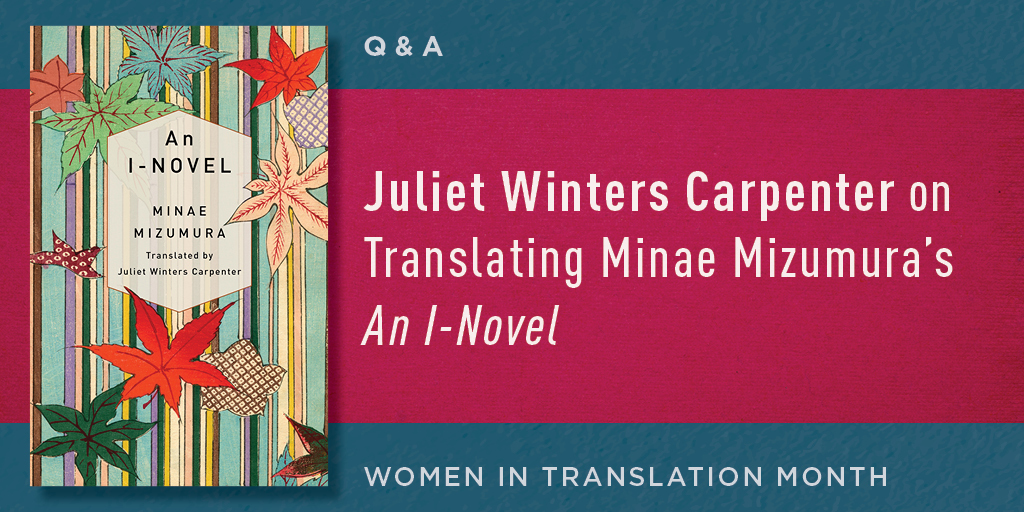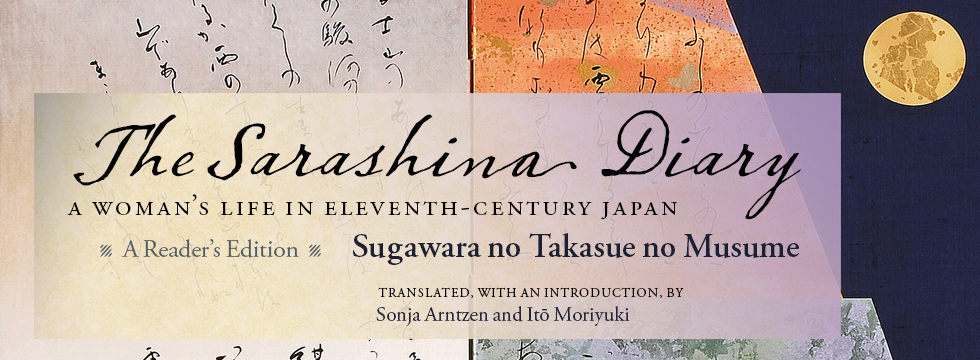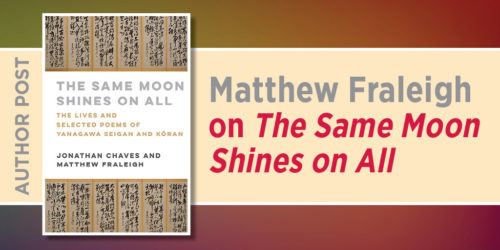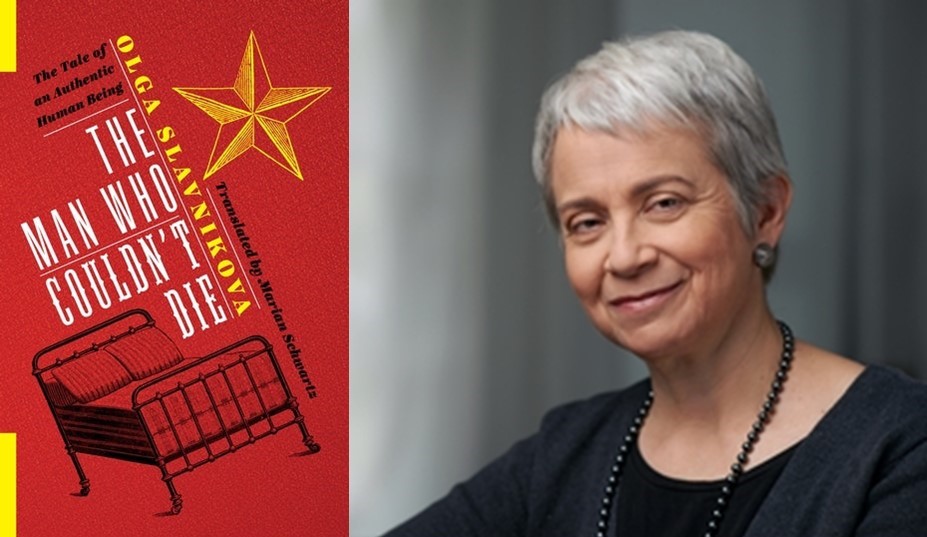Q&A: Juliet Winters Carpenter on Translating Minae Mizumura’s An I-Novel

Minae Mizumura’s An I-Novel, published in 1995, radically broke with Japanese literary tradition by liberally incorporating English words and phrases and printing the entire text horizontally, to be read from left to right, rather than vertically and from right to left. This semi-autobiographical bilingual work that once appeared untranslatable is now available in English thanks to Juliet Winters Carpenter’s masterful rendering. How did she manage this feat? In this Q&A, Carpenter discusses the challenges she overcame and reveals how she collaborated with Mizumura to preserve the nuances of the protagonist’s thoughts.
Q: In your translator’s note to An I-Novel, you quote author Minae Mizumura’s comment on the “singularity of the impossibility” of translating this bilingual novel into English. Could you comment on the difficulties you encountered and how you overcame them?
Juliet Winters Carpenter: The novel’s two main characters, Minae and her sister, Nanae, having lived twenty years in the United States, are comfortable mixing in colloquial English with their Japanese as they chat, and of course they speak entirely in English to schoolmates, teachers, and others. We used boldface to distinguish English from Japanese, like this: “Ha, you did forget! Now, think hard.” It’s conventional to render foreign words in italics, but here, neither language is “foreign.” We reserved italics for other purposes, such as to indicate thoughts. A sentence in bold italics is an English thought: “Must be a car accident.” And one in light italics is a Japanese thought: “Their mothers are living out their dreams through them.” We also mixed in bits of Japanese writing where appropriate, putting those forms first—before the pronunciation and gloss—so that Anglophone readers might experience the slight shock of the bilingual effect without feeling intimidated. Sometimes no pronunciation is given, as when Minae writes her old Tokyo address over and over in her school notebook.
In some cases a word or sentence of the original English needed to be changed, for clarity or for Minae’s own reasons. Here and there new English—and, in two cases, Yiddish!—expressions were added, but such changes are few.
Another fun challenge was ensuring that the sisters’ distinctive voices stayed the same as they wove from Japanese to English and back again.
Q: In addition to language, the novel deals with race and identity, those always-hot issues in American society, offering fresh insights from the sisters’ perspectives. What things did you have to consider as you translated Minae’s and Nanae’s struggles?
JWC: Above all I wanted to convey the ins and outs of Minae’s thinking, which is highly nuanced and blessedly non-PC. Her honesty is compelling, but unspoken assumptions in the Japanese had to be sorted out for a new readership. In the wonderful episode about the blind date disaster, where in high school Nanae is crushed to be paired with a Korean boy, I worked carefully with Minae to come up with the following disclaimer:
I knew that Koreans, perhaps even more than Chinese, were looked down upon in Japan, a prejudice from Japan’s imperial past; yet having grown up in Tokyo, where people were supposed to be more enlightened, and having parents who prided themselves on being liberal-minded, I had never felt that either of us was particularly prejudiced—at least, that’s what I’d always believed. (p. 178)
A literal translation of the above would read something like this: “I didn’t think that Nanae, having grown up in Tokyo, had been implanted with any more prejudice against Koreans, or Chōsenjin [a derogatory term], than I had.” Why might either of them have had such prejudice implanted, and why would growing up in Tokyo mitigate it? In discussion with Minae, I filled in a bit of the historical background, explained the otherwise mysterious reference to Tokyo, added something about their parents, and ended by suggesting that Minae herself has begun to question her own attitudes as well as her sister’s. This is one example of how these sensitive issues needed to be navigated in translation.
I learned a lot from this translation and discovered—surprise—that I think like a Westerner rather than a Japanese, after all. Minae wrote that it took twenty years for her to accept that she was Asian. Learning that the process of coming to grips with an Asian identity could be so arduous startled me. Even more startling was her comment that she was “shocked to learn that a Japanese-American couple wishing to adopt a child would be told by the agency, ‘We’ve found a wonderful girl for you’—and be handed a Chinese baby.” She gradually came to understand that this reaction would be surprising to Americans, who lump Chinese, Japanese, and Koreans all together. These revelations made me question my own reactions and the significance of the one-size-fits-all category, “Asian American.”
Q: Your comments show how closely you collaborate with Minae Mizumura as you translate. Could you talk a bit more about what that is like?
JWC: It has been a wonderful experience, full of “Aha!” moments and tons of laughter as well as sheer exhaustion. We are both sticklers, and we have developed a comfortable rhythm over the years. I come up with a translation; I let it sit a while, then discover it’s no good and rewrite it. Then I send it to Minae, and she goes over it. Meanwhile I am also reconsidering it and marking problem areas. Then we get together and go over it page by page, each of us bringing up questions and suggestions. We pause for lunch—she is a marvelous cook and hostess—and then are back at it. After a couple of days of this we are worn out and take the day off. Generally we go for two weeks at a time, working in person, side by side, and then take a longer break. Repeat till done!
These sessions, usually in Kyoto, have shown me from the inside how an author approaches her own writing. Minae’s sensitivity to how a passage “works”—or doesn’t—in English versus Japanese is invaluable, her love of the Japanese language inspiring. I have had a master class in writing with her, and while I hope to keep translating her works as she writes new ones, now that I live in the States I am a little bit afraid it will be different on Zoom or Skype. But we will cope.







1 Response